-
ABOUT US
-
ACADEMICS
Curriculum Program
Departments
- English
- High School Chinese
- Primary and Junior School Chinese.
- High School Mathematics
- Middle School Mathematics
- Primary School Mathematics
- Music and Fine Arts
- Physical Education
- Physics
- Chemistry
- History and Geography
- Physical Science and Optional courses Department
- Middle School Biology
- High School Biology
- Social Sciences
- Computer Science
- Courses in Primary School
Achievements and Matriculations
College Counseling
Science & Technology Innovation Contest
Subject Competition
-
ARTS
-
ATHLETICS
-
AT SHSID
SHSID ∣ TIMES
PTSA
Club Exhibition
- 龙吟社
- Live 2 Drama
- Choir
- Hip-pop Dance Club
- The Primary School Dance Troupe
- Symposiums Club
- Biology Workshop
- You Shan
- VEX Robotic
- Peking Opera Club
- Baseball Club
- Model United Nations
- The World Scholar’s Cup
- Future Problem Solving Club
- United States Academic Pentathlon
- OM Club
- AMC Club
- Music for Patients
- SHSID Gazette
- Smile Charity
- Cultural Moments
- SciAcademy
- Stem Doge Alliance
- Chinese Debate Club
- IAA
- Mock Trial Club
- Zhengming Club
- Furry Friends
- GT-Racing
- Village Radio
- IMMC Club
- Creative Design and Intelligent Fabrication
- Future City Research Project
- ECOCAP
- AdvocaSEA
- SPDC
- Medishine
- Floorball Club
- Animusic MTC
- Wings Up
- All Booked
Health and Wellness
Campus Safety
Cafeteria Service
-
ADMINISTRATION
-
ADMISSIONS
-
ALUMNI
Alumni Information
Honors Students
- Class of 2025
- Class of 2024
- Class of 2023
- Class of 2022
- Class of 2021
- Class of 2020
- Class of 2019
- Class of 2018
- Class of 2017
- Class of 2016
- Class of 2015
- Class of 2014
- Class of 2013
- Class of 2012
- Class of 2011
- Class of 2010
- Class of 2009
- Class of 2008
- Class of 2007
- Class of 2006
Who Studied at SHSID
SHS Foundation
-
DOCUMENTS
Puxi Campus Grades 4-5: Parent’s Lecture
To improve the cooperation between school and family and develop the independent learning ability of the students, on the evening of November 25, the fourth and fifth grades of SHSID Puxi Campus invited Ms. Zhang Lujia, certified psychotherapist of the department of clinical psychology at East Hospital Affiliated to Tongji University, and two parent representatives to share their opinions on the topic of “developing independent learners.”
Liam’s mother from class 4-1 believes to develop students’ independent learning abilities, children need to be prepared in three aspects—mindset, point of view, and skills. First of all, children need to feel the love from their parents and feel safe at home. In daily communication, listening more about children’s opinions can help them establish a more positive mindset and personal value. Liam’s mom shared the example of her children publishing magazines on their own, and encouraged parents to let children take the responsibility for their choices. On this basis, parents also need to teach children time management skills and develop a growth mindset.
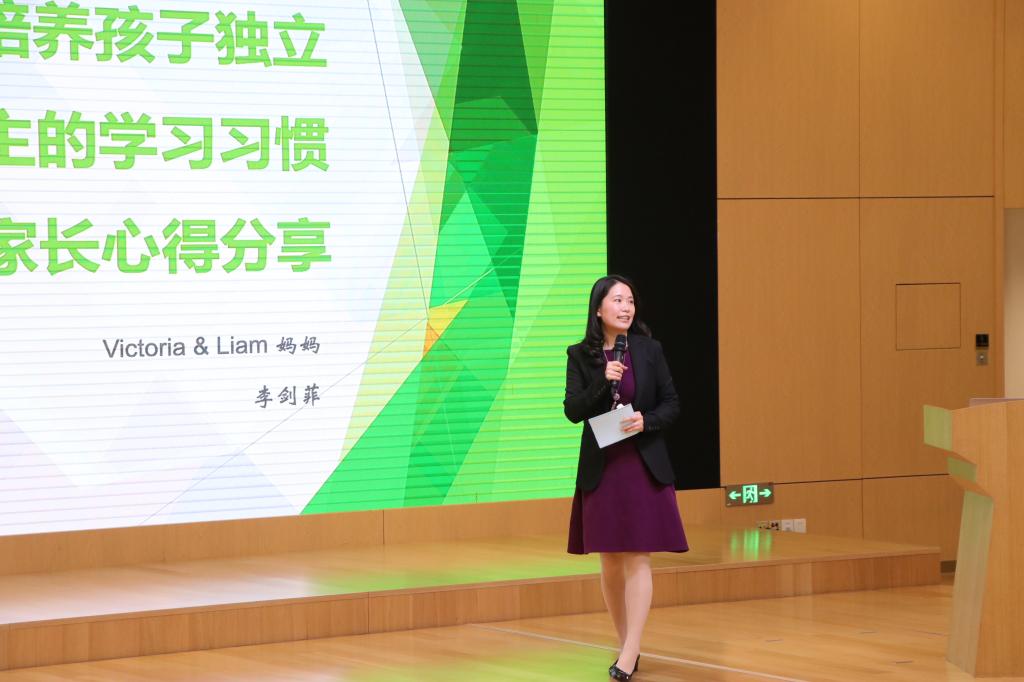
Norman’s father from class 5-2 shared how he uses coaching strategies in family education. At the beginning of the presentation, Norman’s dad stated the importance of self-belief which works as the inner power of an independent learner. When children believe they can do well, and constantly receive external encouragement and reinforcement, they will build the will to succeed, which is the process of establishing the belief. Even if there are some problems, parents can guide children to hold positive beliefs by reviewing the facts and expressing feelings. Norman’s dad also emphasized the point that under the coaching system, parents are reliable guides, supporters, like-minded friends who often encourage. The precondition of all the communication and impacts in the family is the trust between parents and children.
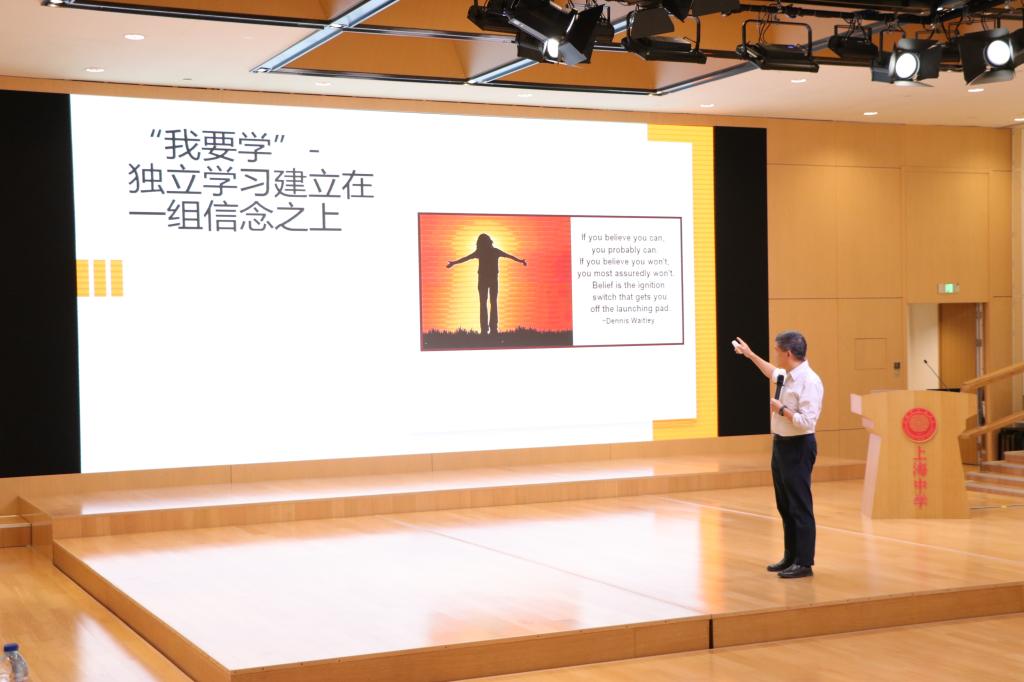
Ms. Chris, director of grades 4 and 5, introduced the specific content of developing independent learners, one of the school’s missions. At school, teachers’ tasks are not merely transferring knowledge, but training students’ ability to think. Ms. Chris also provided several suggestions, including asking more, asking why, allowing space for children so that they are able to develop cognitive skills, thinking skills, and self-directed skills.
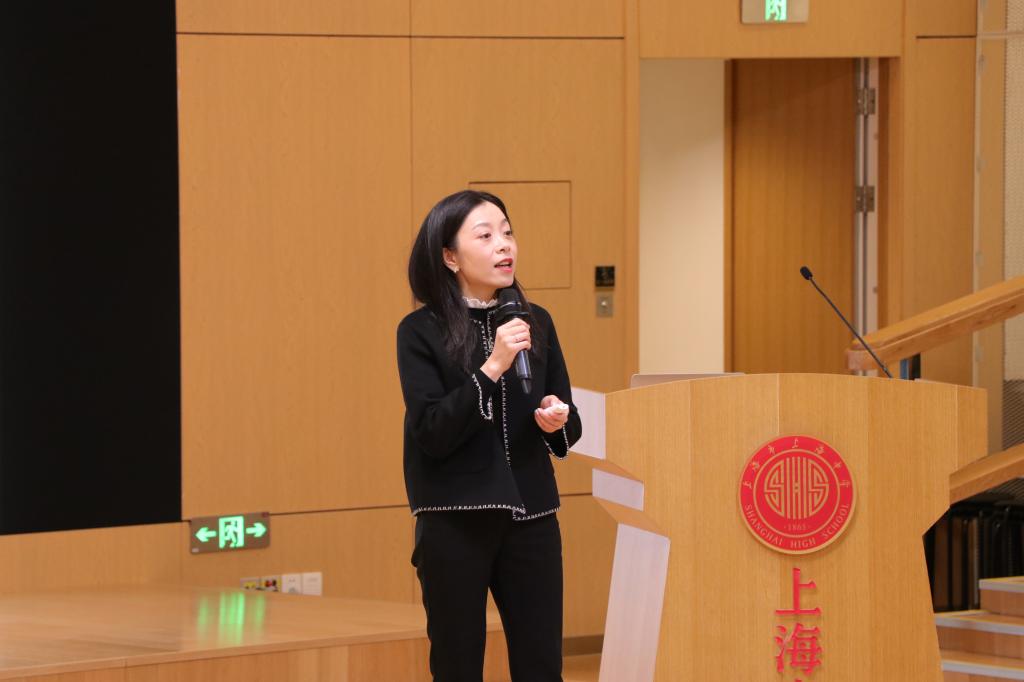
Ms. Zhang Lujia discussed parenting from the perspective of the “family life cycle.” As each individual, the development of a family also has its cycle, in which Ms. Zhang spent more time on the traits and family tasks of the “later parenthood stage.” In this stage, parents no longer have absolute power so that the family needs to adjust the relationships, adding more flexibility in the boundaries and allowing children to be more independent. Teenagers face a series of complex tasks in their lives and might have behaviors labeled as rebellion, striking the family system. Ms. Zhang suggested parents be curious, ask children’s opinions, be careful with the judgment of appearance, and provide autonomy to children. Ms. Zhang also introduced the communication method of “Listen, Respond, Clarify, Express, Discuss.” In short, it concluded the process of communicating with children: listen attentively first, show your response, clarify the meaning, use first-person to express your opinion, and at last, discuss the solution with children.
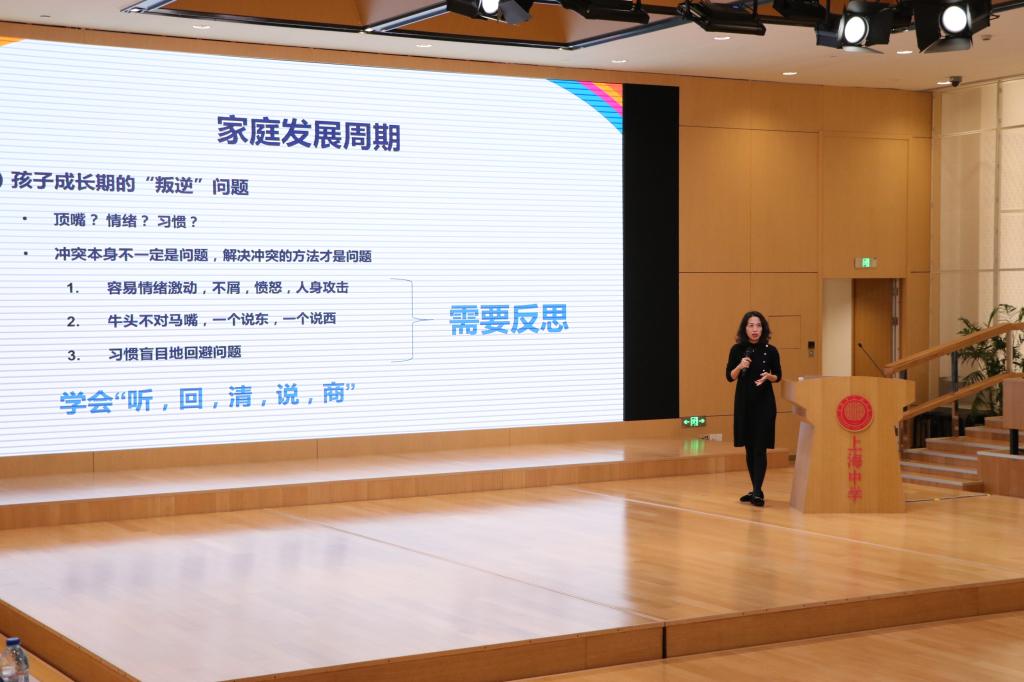
In the end, Ms. Liu Fang, SHSID middle and primary school vice principal, provided several suggestions on behalf of teachers. For example, leaving the obsession of competing with peers, adjusting mindset and expectations, and allowing children to explore freely. We are looking forward that this parent lecture will close the distance between parents and school, and we can work together to establish a learning community where students are able to achieve the goal of becoming independent learners.
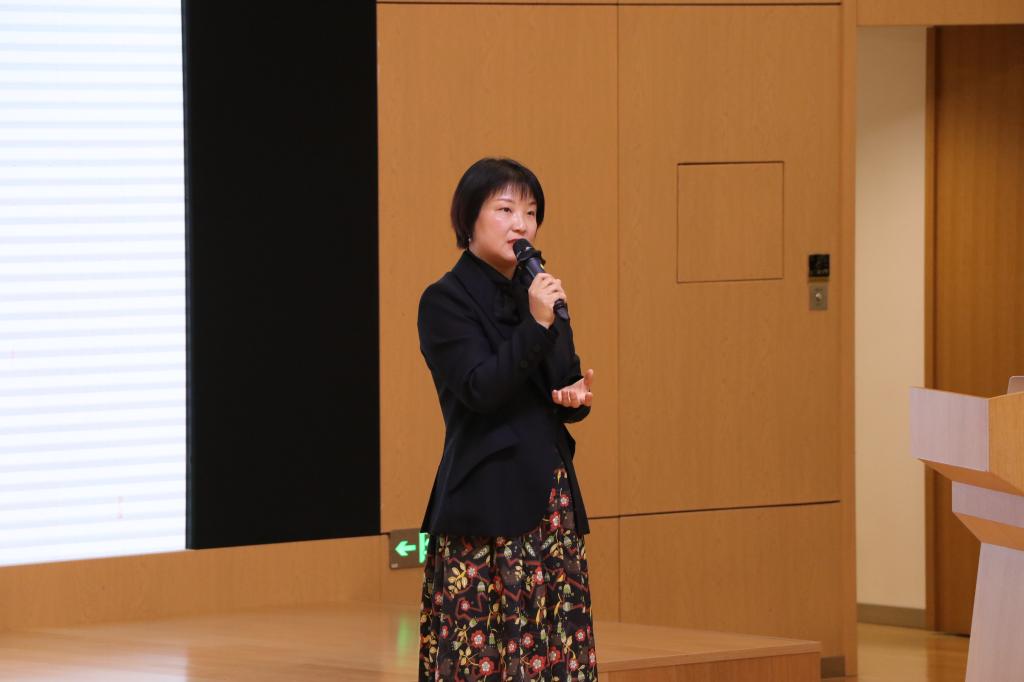
(Written by Wu Yin Pictures by Kang Nina Edited by Huang Shiyuan, Brie Polette)